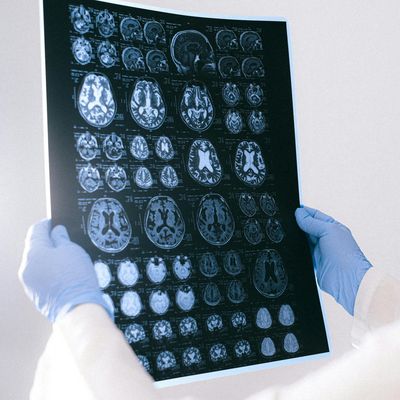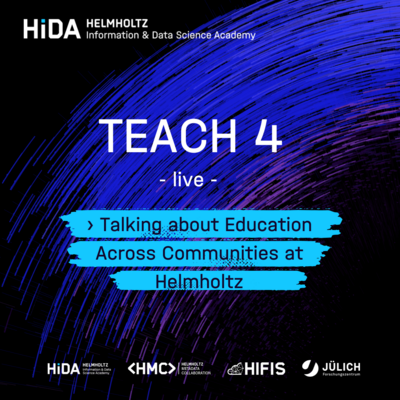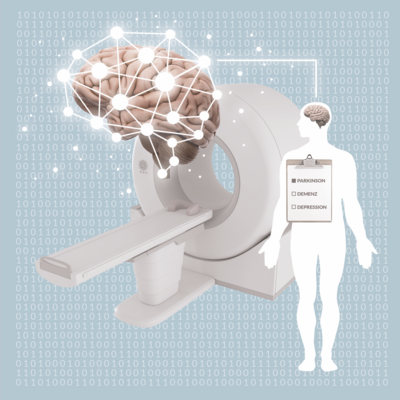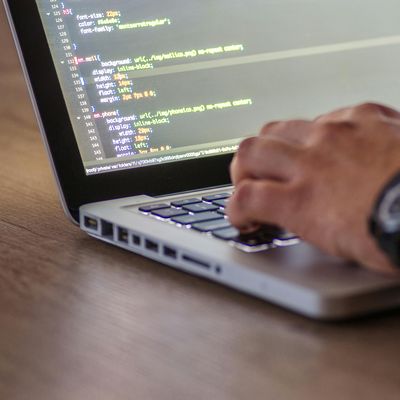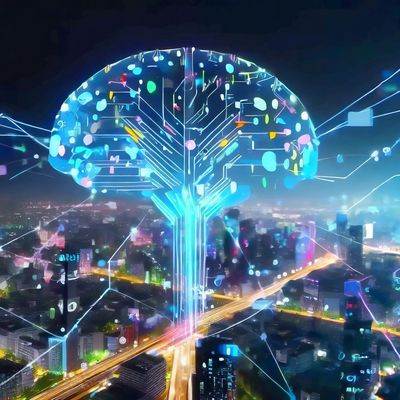“It's almost like a survival question”

Artificial intelligence is becoming ever more powerful. In Montréal, we discussed the opportunities and risks of AI with Prof. Yoshua Bengio, and asked the world's leading expert in Deep Learning: What potential does AI have for science and society? And how can we develop a responsible approach to artificial intelligence?
Mila brings together over 1000 researchers specializing in machine learning and is recognized worldwide for its significant contributions in the field of deep learning. What has made Mila so successful?
The previous incarnation of Mila, which was at the University of Montreal, had a few deep learning professors. That was quite unique, because there were very few people who were working on deep learning. Therefore, we had a critical mass on a very specific topic. I think that has been a crucial ingredient. Moreover, we published some of the early papers that also ended up being very influential.
Scientists in Canada have also benefited from intense support for AI research and the Pan-Canadian artificial intelligence strategy. Was that another factor, which made Mila successful?
Definitely. Both the Quebec government and the federal government of Canada have invested in machine learning and AI disproportionately compared to other sciences, other domains. This was a political choice. It made it possible to have the kind of infrastructure we have here, the research chairs and their very generous funding for professors.
We've been able to recruit some of the best researchers as professors. Moreover, the institutes are connected to society – to startups and companies and this is an important part of our mission. We talk to governments and intergovernmental organizations around the world. And, we invest in these questions of how we make sure AI is going to be beneficial to society, and not being misused.
We need science to be democratized, and especially a science like this one.
Yoshua Bengio

Our interview partner Prof. Yoshua Bengio
Yoshua Bengio
Yoshua Bengio is recognized worldwide as one of the leading experts in the field of artificial intelligence and is best known for his pioneering work in Deep Learning. In 2018, he received the A.M. Turing Award, the "Nobel Prize in Computer Science," along with Geoffrey Hinton and Yann LeCun. He is a full professor at the Université de Montréal and founder and scientific director of Mila - Quebec AI Institute.

In which areas do you see opportunities for collaboration with the Helmholtz Association?
I think one of the greatest potential is in the development of what people call AI for science. A couple of decades of research in deep learning have been focused on the needs of the big tech industry. Language models, recommender systems, things that you have on your phone that can deal with images, sounds, search engines and so on.
The principles behind those tools can also be useful for advancing science across the board. In some areas, there's urgency to advance science to deal with environmental challenges, to deal with health challenges like pandemics. AI has a potential to accelerate the development of science, to help scientists make sense of large quantities of data. It can help them formulate hypotheses extracted from that data and support them in the design of experiments.
What are the requirements for a collaboration?
Scientific collaborations are tricky. They don’t always work from a top-down way. It has to be something at the level of the individual scientists working together, the grad students, people traveling between the places. It takes some effort and time to develop those collaborations.
We have to explore how to make that happen, but also be humble. The collaboration we already started with Fabian Theis from Helmholtz Munich is highly complementary. Here, we don't have as much expertise in biology or computational biology. We have loads of expertise in machine learning, though and while Fabian has highly recognized expertise in computational biology. Of course, he also has expertise in machine learning, but the strengths are complimentary.

About MILA
About MILA
In 2017, the Mila-Quebec AI Institute was established as a partnership between Université de Montréal and McGill University with École Polytechnique de Montréal and HEC Montréal. Mila is now a community of more than 1000 researchers specializing in machine learning.
Mila research topics include generative models, natural language processing, meter learning, computer vision, reinforcement learning, and applications of AI. Mila members have also contributed to open-source software. Theano, one of the early programming frameworks for Deep Learning, originated from Mila. Active projects in 2020 included myia, a Deep Learning framework for Python, and baby-ai, a platform for simulating language learning with a human in the loop.
What do you think are the most important skills data scientists should acquire?
There are many ways one can be useful. You have people who are, for example, stronger on the math side. It is extremely useful to understand the innards of these methods, and to use this understanding to guide some extent, the development of new methods. You have people who are excellent at the algorithms and making them efficient and making them work, which is a different skill. Then you have people who have particular expertise in a domain and in data science. In all of the domains that you have at Helmholtz you do need those multi-disciplinary experts, which I call bilingual because they can speak several scientific languages.
Research topics at Mila include generative models, natural language processing, meter learning, computer vision, reinforcement learning, and applications of AI. What future developments and challenges do you see in these areas?
I would say the most important challenge right now for AI, both at the theoretical level and in applications, is out-of-distribution generalization. Which means what happens when you have data that was collected in a particular way, but then you want to build a system from this that is going to work in fairly different settings. In fact, even small changes like going from one lab, collecting the data, to another lab, collecting the data, are sufficient to throw off current methods. It's a real challenge that is important to solve or at least progress on for all applications of machine learning. The project that we have has a lot of the flavor of exploring directions to help with that.
As part of its mission, Mila recognizes the importance of making research more open, interdisciplinary and accessible. What are you doing to enable open science practices at Mila?
For many years, we published our code with open-source licenses. I would say it was one of the factors for why deep learning was successful. You asked earlier, why was Mila successful? And one of the things is that right off the beginning we committed to write a very well written deep learning code with tutorials (Theano) that could be shared and easy to use by people who were not familiar with those algorithms. The other thing we do is - when we sign contracts with industry - we negotiate hard so that we can keep that open science culture. We make sure, that we can publish, that the code is open source and that there is no patent and so on.
What else did you do to develop a responsible approach to AI?
We have incorporated people in our ranks that are not just computer scientists, but also social scientists, philosophers and legal experts, because those technologies are already powerful, and what scares me more is that they will be even more powerful in the future.
Even in our countries, I don't think that the economic, political and social context is ready to face the potential large-scale negative impacts of these technologies, e.g., in the military or to control populations. We have to think hard about how we can develop technology that is going to be more compatible with human values and human rights. Furthermore, we have to speak out about the dangers to the media, to citizens, to politicians. In addition, we need to invest in applications that could potentially be positive game changers for humanity.
"Humanity needs more heads thinking about these challenges and opportunities and try a diversity of ideas."
Yoshua Bengio
One threat is certainly the manipulation of people with the help of AI.
Absolutely. Companies like Facebook and Google when coupled with powerful AI hold the potential to manipulate us through personalized ads. Now manipulating to buy one brand versus another brand, might not matter that much, but it could also be used to change our political opinion. That is really scary. How much of that is actually happening? I don't know. I'm sure a lot of organizations are trying to push the technology in that direction. It's good that governments around the world are trying to articulate how to set up the rules of the game to at least make some of these things illegal.
To support this effort, you are involved in an organization called The Global Partnership on AI…
It’s an organization, which is connected to the OECD, but is a larger group of countries who want to collaborate on questions like responsible AI. We make recommendations to governments on how to reduce the potential dangers including social media and things like this. On the other hand, we also make suggestions on how to maximize the benefits of AI, for example, in the fields of environment and health.
Is there a global challenge that you would like to make an impact on yourself?
Yes. It’s the growing problem of what is called antimicrobial resistance. We have a crisis already. There's 1.2 million deaths per year right now. And it's going to grow to 10 million deaths per year by 2050. It's going to cost an estimated hundred trillion US dollars by 2050 because it's going to cripple our healthcare systems.
And industry is not really working hard on this because right now it's considered not profitable.
How could AI make a difference?
By helping to speed up the discovery of new antibiotics and reduce costs, for example. Or explore the space of antibiotics that current approaches are not even looking at. We need to be able to churn out new antibiotics faster than the bugs are mutating and becoming dangerous. It's a war between us and them.
In which other fields do you see actual opportunities to solve major challenges with the help of AI?
There's so many. We wrote a paper a couple of years ago that just came out in a journal on climate change and AI. It's a hundred-page paper, which surveys all of the work on using machine learning in many ways to help deal with climate change mitigation mostly, but also adaptation.
For example energy management, designing new materials, carbon capture, methods to reduce our consumption, climate models, better modeling, how species change with respect to climate, how we could use nature in order to help us to capture or avoid losing carbon that is already in the soil. Health is an even bigger field. Humanity needs more heads thinking about these challenges and opportunities and try a diversity of ideas. It's almost like a survival question. In addition to the impact we could have, it makes us feel good about our work. It motivates students and researchers. It makes us realize we are all in it together.
That just makes our work so much more meaningful.
Interview: Xenia von Polier

